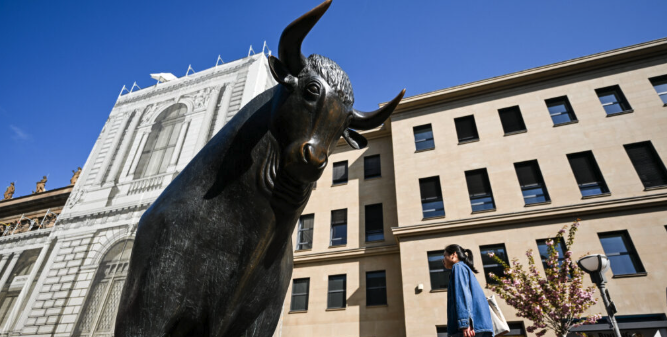Brussels Takes Aim at Those Cashing In on Broken European Markets
The success of the CMU is critical for Europe’s economic future.
In a candid speech delivered in Warsaw, Maria Luís Albuquerque, the EU’s Financial Services Commissioner, expressed frustration over the persistent fragmentation of Europe’s capital markets. Drawing from her extensive experience in both public service and the private sector, Albuquerque highlighted the entrenched national interests and industry players that have long benefited from this disjointed system. She emphasized that these forces have not only hindered integration efforts but have actively worked to maintain the status quo, thereby impeding economic progress.
The Capital Markets Union (CMU), a flagship initiative aimed at creating a single market for capital across the EU, has faced numerous challenges since its inception. Despite over a decade of efforts and political commitments, the realization of a truly integrated market remains elusive. Albuquerque’s remarks underscore the growing impatience within the Commission regarding the lack of tangible progress.
A significant barrier to the CMU’s success is the dominance of national champions in various financial sectors. These entities often have substantial influence over domestic regulations and are resistant to changes that might diminish their market share or profitability. Their opposition to harmonization efforts has led to a fragmented regulatory landscape, making cross-border investments more complex and costly.
Moreover, the political landscape in several EU member states has not been conducive to market integration. National governments, prioritizing domestic political considerations, have frequently resisted EU-level reforms that could challenge established interests. This reluctance has further stalled the advancement of the CMU.
Albuquerque’s call to action reflects a broader recognition within the EU that economic stagnation cannot be overcome without substantial reforms to the financial sector. The Commission is increasingly focused on mobilizing private investment to drive growth and innovation. However, achieving this goal necessitates a more integrated and efficient capital market, free from the barriers erected by entrenched interests.
The Commission’s strategy moving forward involves a more assertive approach to dismantling these obstacles. This includes proposing regulatory changes that would standardize financial practices across member states, thereby reducing the complexity and cost of cross-border investments. Additionally, the Commission is exploring mechanisms to limit the influence of national champions that impede market integration.
However, these efforts are likely to encounter significant resistance. Financial institutions with vested interests in maintaining the current fragmented system may lobby against proposed reforms, leveraging their influence to delay or dilute regulatory changes. Overcoming this opposition will require not only political will but also a concerted effort to align the interests of various stakeholders toward a common goal.
The success of the CMU is critical for Europe’s economic future. A unified capital market would facilitate the efficient allocation of resources, enhance financial stability, and support innovation across the continent. It would also bolster the EU’s competitiveness on the global stage, attracting investment and fostering economic resilience.
In conclusion, while the path to a fully integrated European capital market is fraught with challenges, Albuquerque’s remarks signal a renewed commitment by the Commission to confront the forces hindering progress. The coming years will be pivotal in determining whether the EU can overcome the entrenched interests that have long fragmented its financial markets and realize the vision of a cohesive and dynamic Capital Markets Union.



